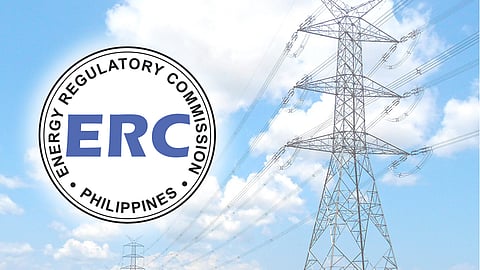
- NEWS
- the EDIT
- COMMENTARY
- BUSINESS
- LIFE
- SHOW
- ACTION
- GLOBAL GOALS
- SNAPS
- DYARYO TIRADA
- MORE

Consumers and industry players can expect to benefit from faster resolution of rate-related cases, which could lead to more predictable electricity pricing and better regulatory oversight.
The Energy Regulatory Commission (ERC) is ramping up reforms to address its long-standing case backlog, improve regulatory efficiency, and ensure timely decisions on critical cases affecting electricity consumers and industry players.
ERC Chairperson and CEO Monalisa Dimalanta said over the weekend that her office is committed to reducing delays that have hampered the resolution of cases, some of which have remained pending for over a decade.
Dimalanta pointed out that the delays have limited the ERC’s ability to make timely rulings on new cases, including rate-related issues directly impacting consumers’ electricity bills and energy companies' operations.
Among the key measures is the implementation of a centralized case-tracking system and digitization of files, which have allowed the ERC to create a unified database for monitoring cases.
The Energy Virtual One-Stop Shop (EVOSS) Dashboard, another initiative, enhances transparency and compliance with timelines set under the EVOSS Act.
“The ability to properly track and manage cases is central to ensuring the speedy disposition of cases in the Commission.
Now that we have a centralized case inventory system as well as digital tools to comply with EVOSS timelines, we are breaking down long-standing silos within the agency that have limited our ability to deliver on our mandate in a timely and efficient manner,” Dimalanta said.
The ERC reported that as of 2024, it had resolved 6,876 cases since its establishment in 2002, leaving 3,017 cases pending.
In 2024 alone, the Commission resolved 833 cases and motions, including 230 rate-related cases. This reflected a 100 percent resolution rate for new cases filed that year, though a significant portion of the ERC’s work remains focused on clearing the backlog.
